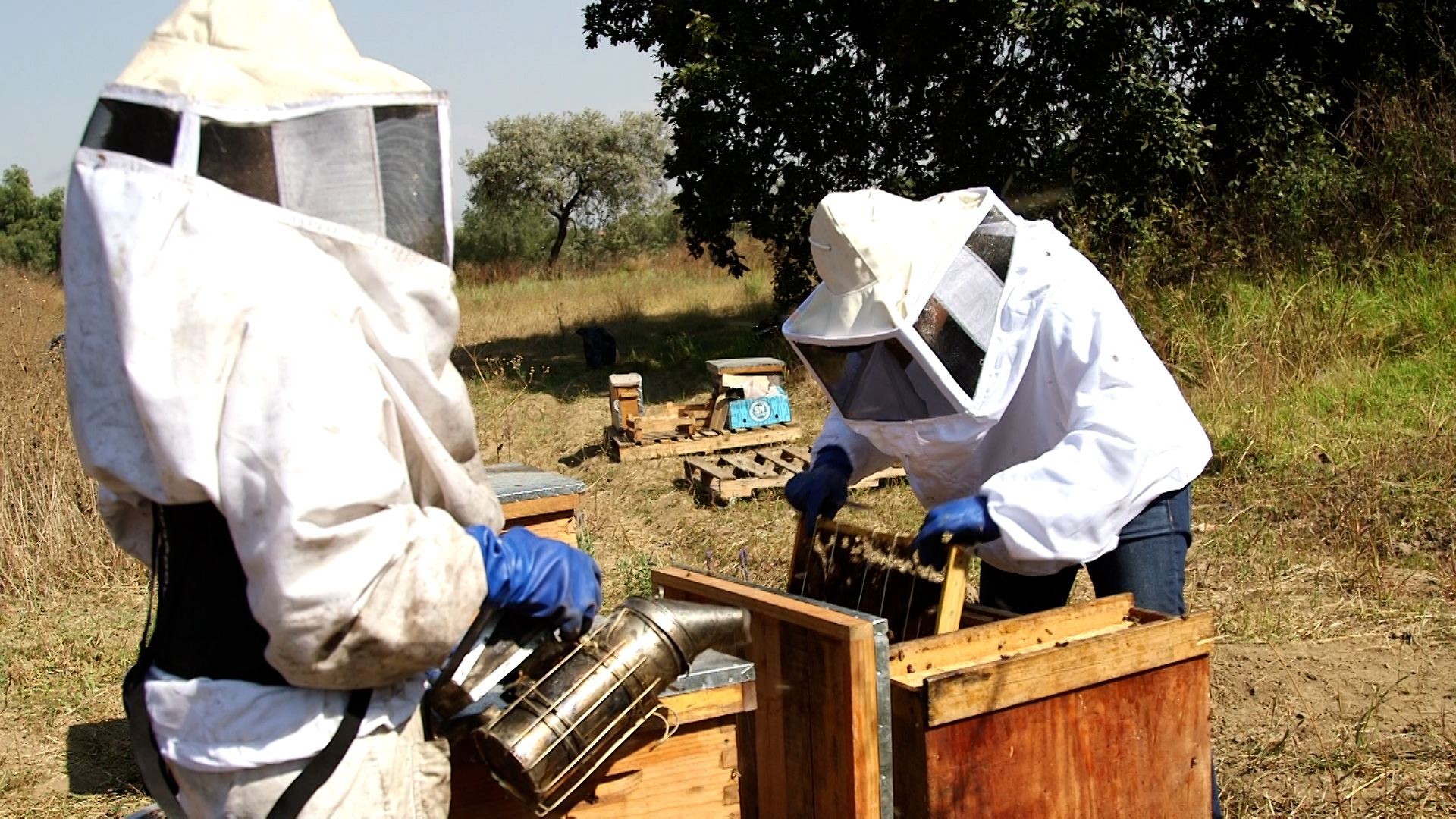This is how they save the bees of Mexico City 2:51
(CNN Spanish) -
If you find a swarm of bees in your house, your first reaction is probably fear.
And you might think that the only possible way out is to kill them.
In Mexico City, a group of women is running a project to do exactly the opposite: rescue them.
Abeja Negra SOS emerged in 2018, Adriana Véliz, its operational director, tells CNN en Español, as an alternative to the city's swarm care protocol. This protocol, in force since the 1980s, involves eliminating swarms. In other words, kill the bees. "What would happen if these swarms, instead of you pouring them water with soap, we enabled them to be productive?" Véliz wondered. And so began the task of the organization, which moves bees that are at risk or that are a problem for the population to safe places outside the city.
The tireless work of these insects is key to our subsistence: three out of four crops that produce fruits or seeds that we use for food depend in part on pollinators, according to the Food and Agriculture Organization of the United Nations (FAO, for its acronym in English).
And it's not just about their role in the production of healthy foods (and the ones we like the most! Coffee, chocolate and strawberries are some of those pleasures that depend on pollinators), they are also essential for many medicines. derived from plants.
And also, as Véliz explains, they are "ecological modulators".
Bees "participate in the pollination of native plants and this has helped the fauna a lot. If bees did not really exist, we would lose several ecosystems," he says.
advertising
Despite the fact that the world recognizes its importance, it has not managed to stop the alarming fall in bee populations as a result of certain agricultural uses of the land, the use of pesticides, climate change and in Mexico, as Véliz explains, another factor: illegal logging .
And in this framework, the call of Black Bee is to change the way of thinking about these insects.
"It is very egocentric for humans to say 'oh, an insect, kill it; a spider, kill it', we want to solve everything with killing. And the reality is that the only thing that has led us is the conditions in which we have today ecosystems and the planet ", says Véliz.
How are swarm "rescues" done?
Swarms are "the bread and butter" in Mexico City, says Adriana Veliz: Abeja Negra receives between 15 and 20 calls a day and makes approximately six rescues a week.
When they receive a call, the first thing they do is ask for photos and videos to do a digital analysis of the swarm.
Given their experience, that already allows them to identify, for example, the location.
To define the intervention, the first factor to take into account is safety, says Véliz: not risking themselves as technicians or the rest of the people involved.
If they understand that the rescue is viable, they go to the scene, do a visual inspection and begin the operation.
"We work from swarms that are exposed, which are the simplest, to swarms that are already inside structures, walls, furniture," he explains.
This part of the operation takes, on average, between an hour and an hour and a half.
Then a 40-day process of caring for the swarms begins and, finally, they are transferred to their final destination: they can be delivered to beekeepers, donated to those who want to undertake this activity or remain in the organization.
Abeja Negra is made up of women who are veterinary doctors and volunteers.
Do you want to raise bees?
Interest in beekeeping is growing.
The production costs of this activity are low compared to other branches such as cattle raising, explains Vélez.
And besides, he says, the handling is "relatively simple."
"Everyone is afraid of being bitten, but if you work well, your risk of getting bitten is greatly reduced," he explains.
Beyond honey, the benefit of having bees is that they allow you to pollinate areas, he explains.
However, in Mexico City this activity is not yet legal, so if you want to do it you must leave urban areas.
But watch out.
It is not necessary to raise bees to help their survival: actions as simple as planting trees and avoiding unnecessary waste of water help, says Véliz.
(Here you can find a series of daily actions recommended by the UN).






/cloudfront-eu-central-1.images.arcpublishing.com/prisa/WTBKRDIX6ZE3LORP2WWAXVTQMQ.jpeg)







